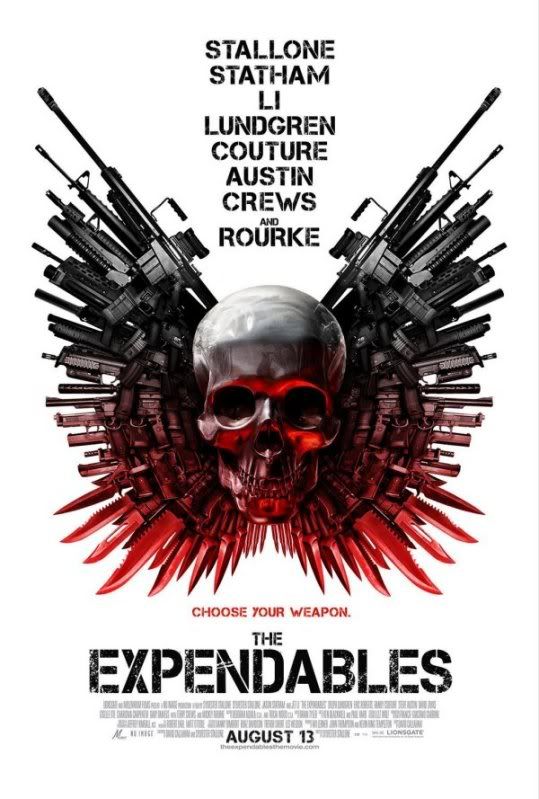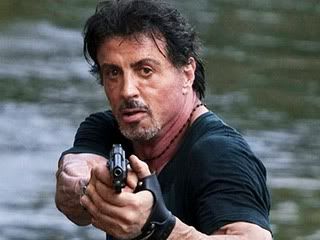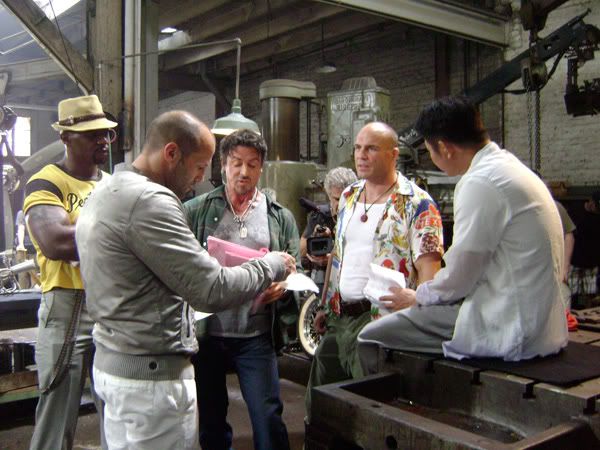
[audio:http://www.blueinkalchemy.com/uploads/buckaroo_banzai.mp3]
We call them Renaissance men, polymaths or omnidisciplinarians. The last two are more friendly for people of all genders who dabble with success in multiple fields of interest, but one of the first was Leonard da Vinci. Benjamin Franklin is another, but neither he nor da Vinci ever developed supersonic cars, practiced neurosurgery or battled evil space aliens. That we know of. For confirmed antics of that sort, we must turn to a lesser-known but quite impressive polymath by the name of Buckaroo Banzai. In 1984 a docu-drama following an adventure of his was released, sub-titled Across the 8th Dimension. Sure, it may seem like a mash-up sci-fi adventure parody, but I’m sure it’s just as much based on a true story as most things Hollywood slaps that label on these days.
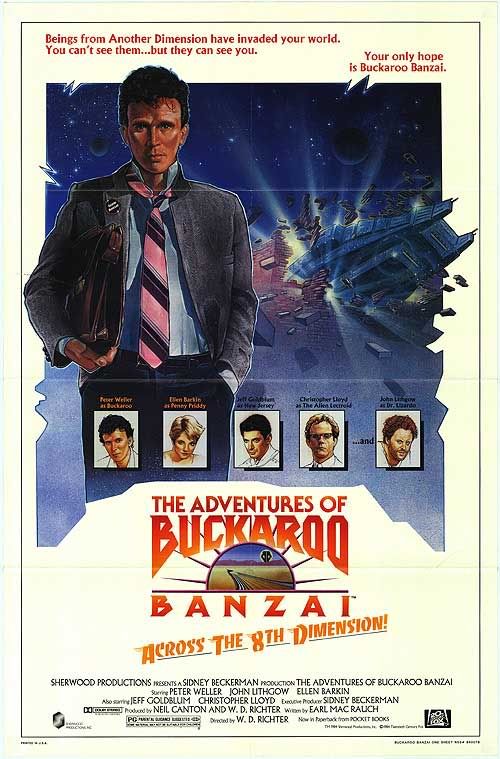
Dr Banzai began his adult life as a neurosurgeon, but a brilliant career in medicine felt too boring to him, so he took up super-science and crime-fighting as well as a rock career. His latest invention, the Jet Car, is supplemented by a tiny device of secret origin called the Oscillation Overthruster, which means the car not only achieves supersonic speeds but also drives through solid matter. The Overthruster was first tested in 1938, an incident that not only failed but lead to the possession of one of its inventors by the evil overlord of an alien race called the Red Lectroids. Thirsty for conquest but ill-equipped, the Red Lectroids were defeated by their peace-loving cousins the Black Lectroids and banished to the 8th dimension, which Buckaroo just drove through. Instead of citing him for speeding, the Red Lectroids try to get their paws on the Overthruster to free the bulk of their forces, which puts them in direct opposition of Buckaroo Banzai and his Hong Kong Cavaliers. Let’s just hope they save the world in time for their gig in Atlantic City.
If you think this premise sounds a bit silly on paper, you’re not far from the truth. In addition to the special effects and music that place this chronologically smack in the middle of “the big 80s,” the do-nothing-wrong Buckaroo may seem a bit stale for some, even verging into author or audience projection. Most of the special effects budget appears to have been spent on the Jet Car and the facial appliances for the various Lectroids, as the miniature work for the spacecraft we see is laughable even by the standards of Star Wars before Lucas started messing around with it. The movie certainly isn’t going to be blowing your mind with clever narrative construction or even that many interesting characters.
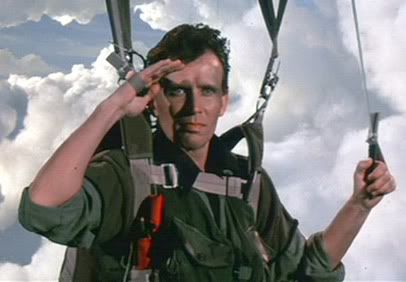
What a guy.
Then again, neither did Flash Gordon or Total Recall. Buckaroo’s story has got its tongue firmly wedged in its cheek, and the smiles that pass between the Hong Kong Cavaliers are pretty infectious. Like any good parody, the movie is in on its jokes and knows it shouldn’t be taken too seriously. It’s one of those times where the MST3K mantra comes in handy. Unlike some other parodies, though, Buckaroo Banzai doesn’t go so far as to address or even acknowledge the fourth wall. The film is, for better or for worse, mostly concerned about doing its own thing.
In fact, that’s one of the biggest selling points for this admittedly silly and campy flick: it’s original. It’s indicative of a time where filmmakers, actors and special effects houses were keenly interested in trying something new and different. In this case, the goal was to create a character that harkened back to the pulp adventures of two-fisted yet erudite men of action like Doc Savage while including elements of super-science of the nuclear age. While Buckaroo’s polymath portfolio does verge on the ridiculous at times, the way in which he’s presented seems more along the lines of Ace Rimmer from Red Dwarf than any straighfoward Mary Sue type. You may scoff at his ability to pull hitherto unknown devices and parachutes out of his ass, but you can’t help but like the guy. He can’t spend too much time thinking about how great he is, dammit, there’s a world to save!
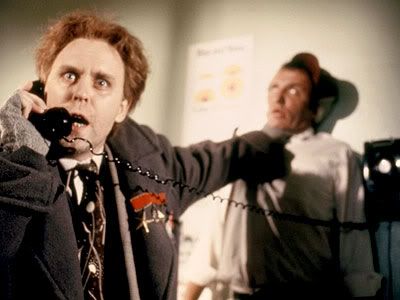
“VAT DO YOO MEEN ZEY DUN LIKE ZE MOVEE?”
In the end, The Adventures of Buckaroo Banzai Across The 8th Dimension is harmless, campy and very unique fun. I can’t say every modern viewer is going to tolerate some of its dated effects and conventions, as it was created before ironic artistic expression was as huge as it is, but it’s certainly not looking to be taken seriously as art or make a lasting impression on genre fiction. There are quite a few mainstay actors from the fringes of the cinema present, from Peter Weller’s aw-shucks Banzai to John Lithgow’s extremely insane evil overlord, from Clancy Brown’s warm and friendly cowboy to Christopher Lloyd’s acerbic nefarious crony. It won’t be the best science fiction, action/adventure or comedic spoof you’ve ever seen, but I can pretty much gurantee that when you watch Buckaroo Banzai, you’ll agree that you’ve never seen anything quite like it. And in a world of derivative spin-off cash-ins and adaptations ranging from reasonably faithful to face-palmingly atrocious, that’s absolutely nothing to sneeze at. Give it a try, and remember… no matter where you go, there you are.
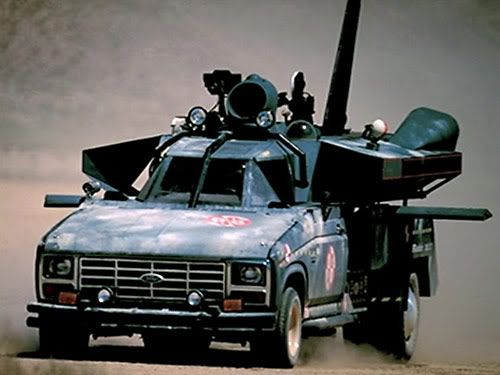
“Sir, I’m going to have to write you a ticket for breaking both the sound and dimensional barriers…
…and for not making the Jet Car out of something more aerodynamic.”

